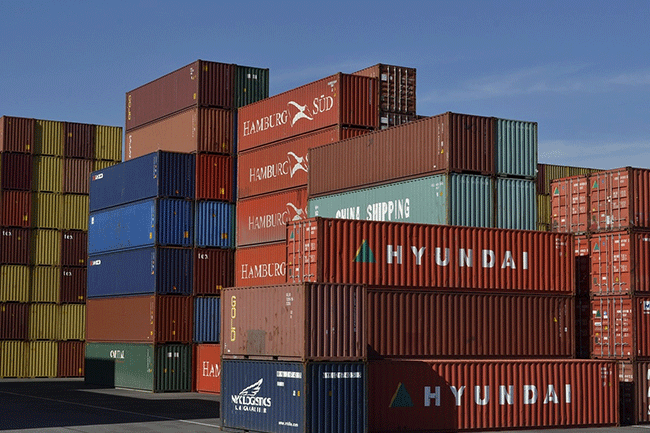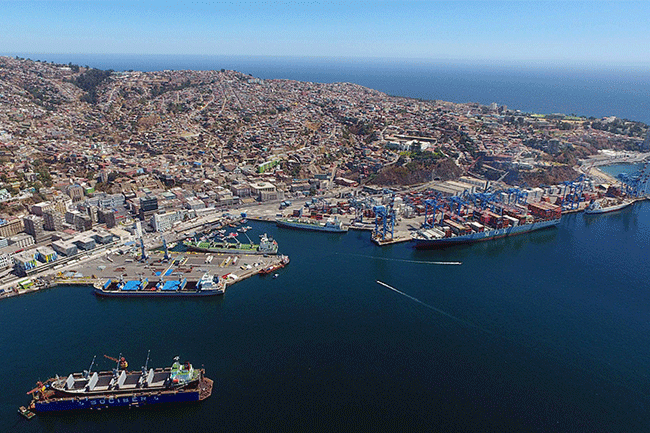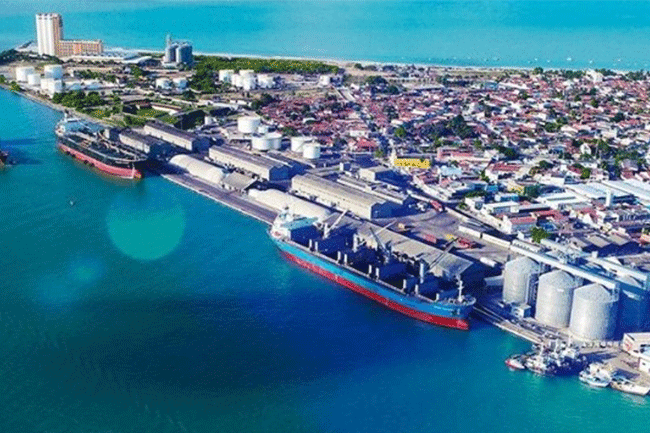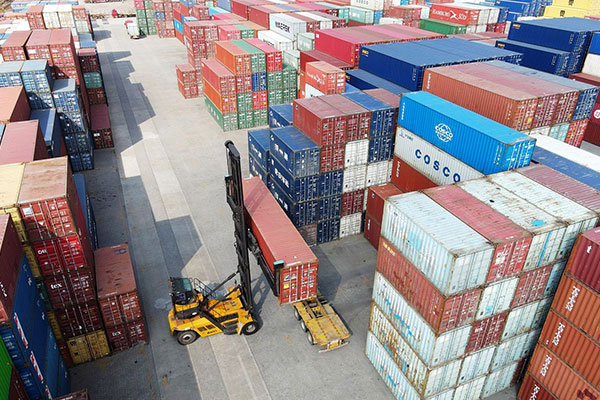- Shanghai Zhongshen International Trading Co., Ltd. – Your reliable partner with 20 years of import/export agency service expertise.

Dutch Coffee Import Market Overview: Dual Opportunities from Europe’s Hub and China’s Demand
The Netherlands, Europe’s largest coffee-trading hub, leverages Rotterdam’s world-class logistics network to import more than 2 million tons of coffee annually—over 35 % of the EU market. Its edge lies not only in port throughput (Rotterdam handles over 15 million TEU a year) but also in a mature coffee distribution system: from green-bean roasting to specialty processing, the country hosts more than 200 specialized traders and roasters. Chinese demand for Dutch coffee is climbing at an 18 % compound annual growth rate, with specialty roasted beans, organically certified green beans, and distinctive blends driving imports—creating opportunities for professionalforeign tradeProxy services offer vast possibilities.
Import Agent ServicesCore Competencies: The dual-engine of document processing and logistics services
I. Document Processing: The “Invisible Engine” of Full-Chain Compliance
Dutch coffee imports involve 10+ categories of core documents; the document-handling capability of a professional agent directly determines customs-clearance efficiency and cost control. Key documents include:
- Commercial Invoice: The coffee variety (green beans/roasted beans), HS code (09012100 or 09012200), and unit price (must meet customs valuation standards) must be clearly indicated;
- Origin Certificate(CO): Dutch-issued General Certificate of Origin or EUR.1 Certificate of Origin (applicable to the EU-China MFN tariff rate);
- 衛(wèi)生與檢疫證書(Health & Phytosanitary Certificate): Issued by the Netherlands Food and Consumer Product Safety Authority (NVWA), it must state “Complies with China’s GB 31607-2021 National Food Safety Standard—Limits of Pathogenic Bacteria in Bulk Ready-to-Eat Foods”;
- Bill of Lading (B/L):Maritime transportChoose a clean bill of lading issued by a shipping line (e.g., Maersk, CMA CGM),Air freightPlease pay attention to how the “Shipper’s Declaration” box on the air waybill (AWB) is filled out.
The agency team must ensure “consistency across documents and between documents and certificates”; for example, the weight discrepancy between the invoice and the packing list must be ≤0.5 %, and the shipper information on the bill of lading must exactly match that on the certificate of origin.Zhong Shen International Trade Co., Ltd.With 10 years of experience, our documentation team has achieved a 99.8% zero-rejection rate for customs-clearance documents, and our average clearance time is 1–2 working days faster than the industry average.
II. Logistics Services: End-to-End Control from Rotterdam to China
Logistics links must select the optimal solution based on cargo volume and time-efficiency requirements:
- Full Container Load (FCL): Suitable for shipments over 5 tons; Rotterdam to Shanghai Port takes about 35 days, and can be shortened to 30 days via Rotterdam–Singapore–Shanghai transshipment;
- Less - than - Container Load (LCL): For small batches of 1–5 tons, consolidate via Rotterdam CFS; after devanning at the destination port, distribute to the customer’s warehouse.
- Air freight: First choice for rush orders—Amsterdam to Shanghai Pudong in about 10 hours; cleared and delivered to major Chinese cities within 24 hours.
The agency team will match logistics solutions to customer needs: for short-shelf-life roasted beans (usually six months), it prioritizes fast sea services (e.g., MSC’s “Coffee Express”) and takes out “refrigerated cargo insurance”; for trial-order customers it recommends LCL to cut initial freight. Meanwhile, via the TMS tracking portal, clients can monitor shipment location, temperature (reefer container) and ETA in real time, achieving end-to-end visibility.
Expansion of business with Russia: VTBConvert foreign exchange into RMBAdvantages Facilitate Efficient Cross-Border Capital Flow
For coffee imports involving Russian transit or direct trade (e.g., distribution to China via St. Petersburg Port), agency services can be extended to include foreign-exchange settlement support through VTB Bank (Bank for Foreign Trade of Russia). As one of the primary settlement banks for Sino-Russian trade, VTB offers three key advantages:
- Dual-currency direct settlement: Support direct ruble-renminbi exchange to hedge against euro exchange-rate volatility (in 2023 the EUR/CNY rate swung by 8%);
- Fast crediting: Settlement via the dual-channel SWIFT and CIPS system shortens the cycle by 2–3 business days compared with ordinary banks;
- Compliance guarantee: VTB is directly connected to the data systems of China Customs and the State Administration of Foreign Exchange, enabling automatic matching of customs-declaration information and reducing the return risk caused by discrepancies between “payment” and “declaration.”
For example, a client importing coffee from the Netherlands via St. Petersburg for re-export completed payment through VTB foreign-exchange settlement in just three working days—five days faster than the traditional euro settlement—and cut exchange costs by 1.2%.
Insights into the International Trade Landscape: The Value of Agency Amid Challenges and Opportunities
Coffee imports currently face three major challenges:
- Supply chain fluctuations: The 2023 Suez Canal congestion extended sea transit times by 7–10 days and pushed Rotterdam yard storage fees up 20%;
- Compliance barriers escalate: China Customs has intensified sampling inspections on imported food (the spot-check rate for coffee products rose to 15% in 2023); the EU plans to implement the Carbon Border Adjustment Mechanism (CBAM) in 2026, under which carbon emissions from coffee roasting will be subject to taxation;
- Exchange Rate Risk: The annual fluctuation of the EUR/CNY exchange rate exceeds 10%, and the import cost of goods valued at USD 1 million can vary by as much as CNY 800,000.
Opportunities come from two aspects:
- RCEP Dividends: Trade facilitation measures between China and ASEAN countries indirectly reduce the cost of transshipment through Southeast Asia;
- Market demand upgrade: China's specialty-coffee consumer base has surpassed 50 million, with per-capita consumption reaching 12 cups a year, fueling demand for small-volume, multi-batch imports.
Professional agents help clients cut overall costs by 10–15 % by integrating supply-chain resources (e.g., locking in freight rates through annual space-allocation agreements with Maersk), issuing early compliance-risk alerts (e.g., CBAM countermeasures), and offering currency-hedging advice (e.g., forward foreign-exchange settlement).
End-to-End Agency Operation Guide: 9 Critical Milestones from Consultation to Feedback
- Client Consultation: Clearly specify the coffee type (green beans/roasted beans), target market (e-commerce/offline stores), customs clearance port (Shanghai/Qingdao/Shenzhen), and any special requirements (such as organic certification labels);
- Negotiation and Contract Signing: Review the quality clauses in the contract (e.g., moisture content of roasted beans ≤8%), payment terms (T/T 30% deposit + 70% on arrival at port, or L/C at sight), and risk allocation (under FOB Rotterdam, risk transfers once the goods are loaded on board);
- Orders & Payment: Assisted in reviewing the qualifications of the Dutch supplier (certified by the Dutch coffee trade association Koffiebranche), arranged?L/C?Issue or T/T payment (preferred under VTB settlement scenarios);
- Production supervision: For green beans, verify the plantation’s sustainability certifications (e.g., Rainforest Alliance); for roasted beans, oversee the roastery’s HACCP implementation records;
- Logistics Management: Booking space (sea/air freight), arranging insurance (all-risk plus taint-of-odour coverage under CIF terms), and preparing the "Shipping Advice";
- Customs Compliance: Submit the “Registration Number of Overseas Food Production Enterprise for Import” (GACC Filing Number) to China Customs, pay customs duty (8 %) and value-added tax (13 %), and cooperate with inspections (e.g., sampling for aflatoxin B1 testing);
- Delivery and Distribution: Bonded warehouse storage (if needed) or direct distribution to the customer's warehouse (third-party logistics (3PL) collaboration supported);
- Quality Assurance: Complete the initial inspection within 48 hours of arrival; if cargo damage is found (e.g., moisture due to broken packaging), the agent will assist in obtaining an SGS inspection report and file a claim with the insurer;
- Summary Feedback: Provide the "Full-Process Import Cost Analysis Report" (including detailed breakdowns of ocean freight, customs duties, and warehousing fees) and the "Time-Efficiency Evaluation Form"; settle the final payment and file all documents (retention period ≥ 3 years).
Certification Notice: Compliance Requirements for Imported Coffee and the Scope of Agency Services
When importing Dutch coffee, the following certifications need to be noted; however, the agent does not directly provide certification-handling services:
- EU Food Hygiene Certification (EC 852/2004): Dutch suppliers must hold the certificate; agents can assist in obtaining a copy for customs review;
- Registration of Overseas Food Production Enterprises for Import into China (GACC Filing): The supplier applies to the General Administration of Customs, and the agent can guide the submission of the required documents (such as company qualifications and production process);
- Organic Certification: such as ECOCERT (EU) or China Organic Product Certification (CNCA), the agent can provide contact details for the certification body (e.g., Beijing Zhonglv Huaxia);
- Sustainable certification: Such as Fairtrade and Rainforest Alliance certifications, suppliers must proactively apply for them.
The client must contact the certification body on their own to complete the process; the agent can provide compliance advice (e.g., the certification’s validity must cover the import cycle) and document verification services (to ensure the certification information matches the actual goods).
Through professional document processing, end-to-end logistics control, and an accurate grasp of international trade dynamics, Dutch coffee import agency services have become a core driver for companies to mitigate risk and boost efficiency. Only by choosing an experienced agency team can you secure a decisive edge in today’s complex global trade environment.
? 2025. All Rights Reserved.










